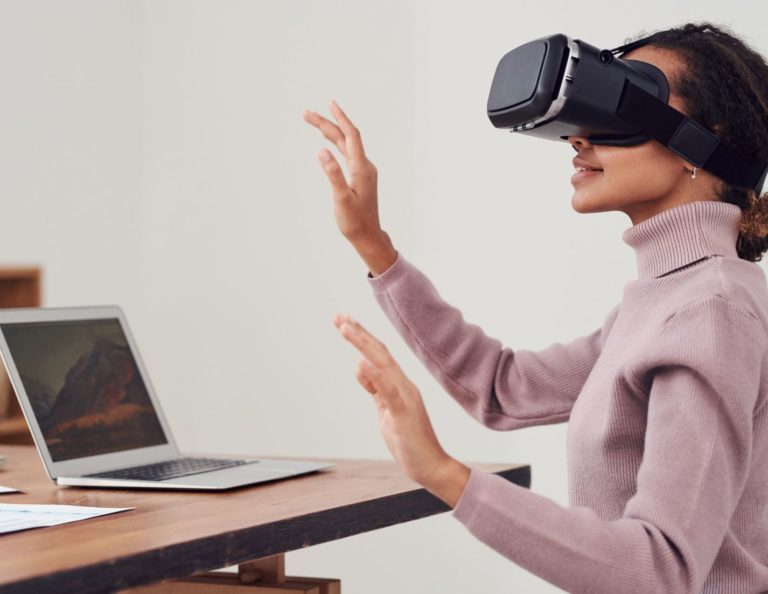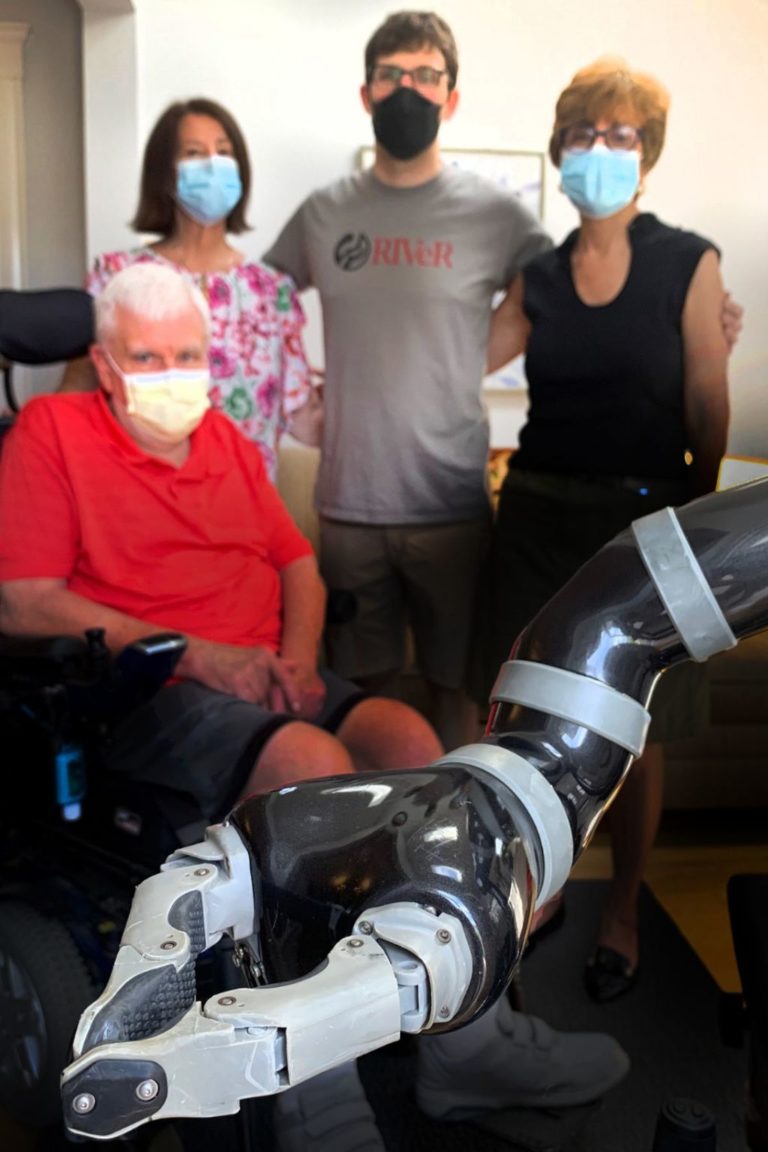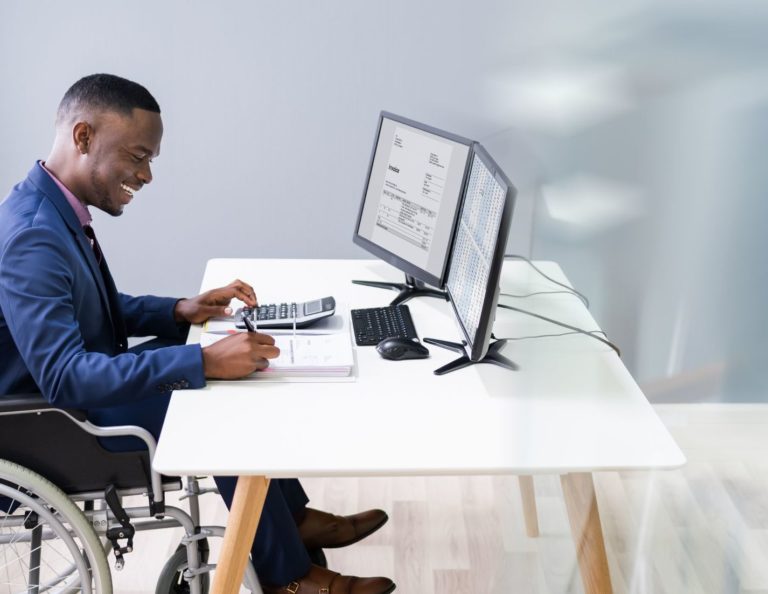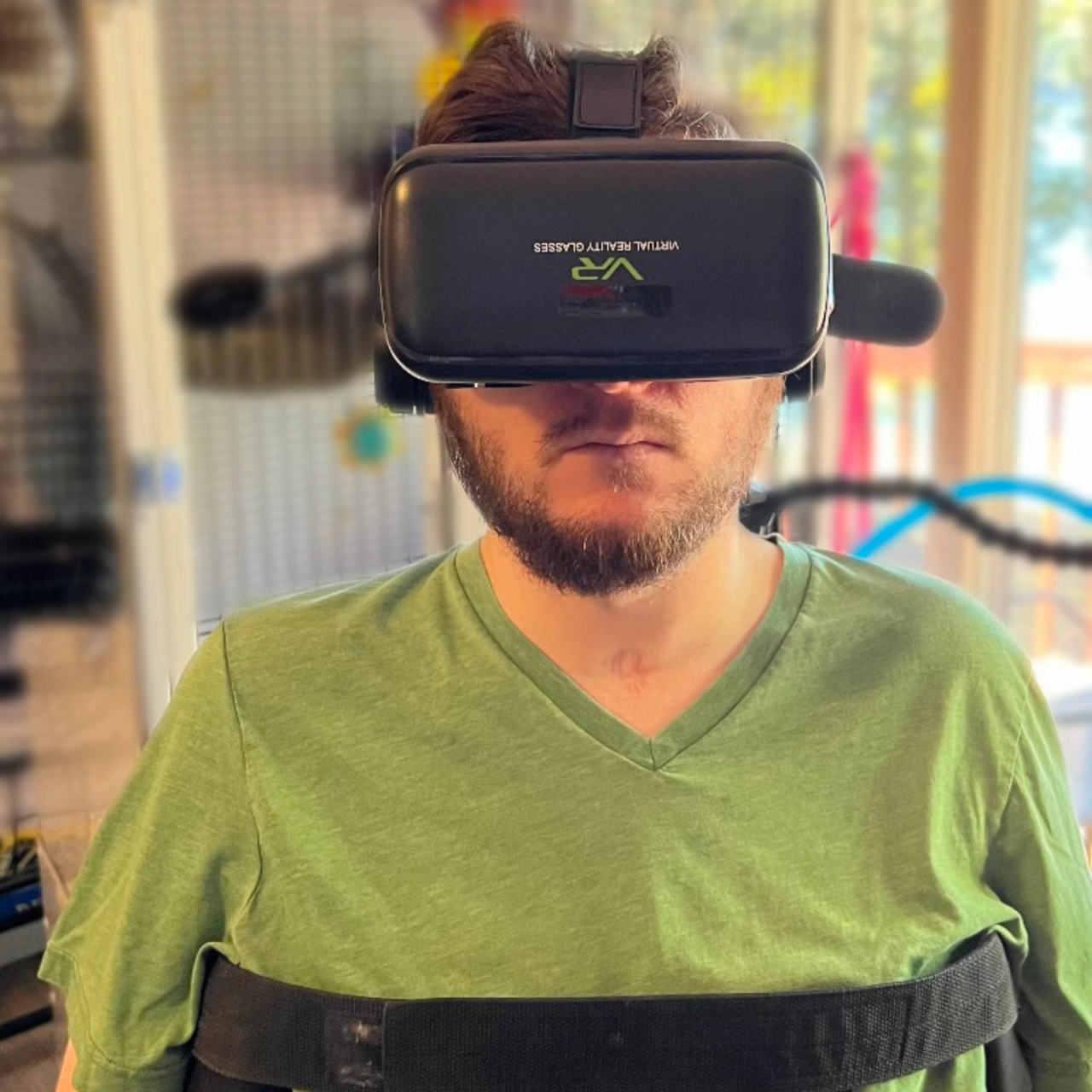

Innovative Technology for Those Living with Physical Disabilities

As an organization dedicated to working with those living with physical disabilities, we look at our history with great pride. Now, Envisioning Access is in an exciting transition phase, undertaking initiatives that will allow us to continue to serve the disability community by providing resources through the utilization of robotics, augmented reality (AR), virtual reality (VR), and artificial intelligence (AI).
Envisioning Access is looking to take the 40+ years of experience, intellectual property, and insights it has gained in service to the disability community and offer it in collaboration with robotics, AR, VR, and AI research organizations, firms, and service providers.
The goal of our new Innovative Technology Initiative is to offer new technologies, now coming on the market at a rapid pace, that help empower individuals with physical disabilities to live more independent and engaged lives. As when we trained service monkeys from the 1980s through the early 2000s, our goal today is to provide tools that allow individuals with physical disabilities to have opportunities to pursue meaningful careers, advanced educational degrees, and fulfilling personal lives.
How Does It All Work?
Envisioning Access is working directly with people who are living with a physical disability who can advise scientists, researchers and developers at companies and universities as they develop technology that is appropriate to assist those with disabilities in their daily living needs. Often a piece of technology comes on the market that is not useful for someone living with a disability. Through our pilot projects, Envisioning Access hopes to involve the disability population directly so the technology developed is useful, affordable, and available for those who need it.

Pilot Projects
As we launch and complete pilot projects, we will keep three important objectives for all our projects in mind. Every project must:
- Provide accessibility.
- Explore how aging affects the onset of disabilities.
- Ensure the technology can keep someone, no matter the disability or age, in their home.
We are also aware that new technologies are vital for providing the resources to get someone back to work in meaningful and engaging employment or back to school. Living a life on one’s own terms is of utmost importance. The technology in which we engage is for the future.

Pilot Projects in Progress
VISORS PROJECT
A Collaboration between Waipoint, a company in Kirkland, WA, and Envisioning Access. Waipoint and Envisioning Access are collaborating to provide something truly revolutionary. Waipoint/Envisioning Access’s ‘VISORS’ project offers a potentially groundbreaking solution for individuals with visual impairments. Leveraging AI technologies, it enables users to accurately locate objects, receive guidance on reaching them, and access real-time detailed information through audio communication and visual enhancement when available. While it does not aim to replace human vision, VISORS serves as an invaluable “second pair of eyes,” empowering visually impaired individuals with greater independence, accessibility, and autonomy. Envisioning Access, as a strategic partner, will work to test the new technology and ensure that those living with low vision or blindness provide essential feedback. Often, products for people with disabilities are introduced to the market without adequate testing by those who need them. The success of VISORS will be the result of listening to those who are visually impaired.
We are undertaking a campaign to raise:
$60,000—compensation for individuals to test and give feedback on this product
$200,000—for the development of the product
THE BILLY PROJECT:
Working with a team of AR/VR scientists, Envisioning Access is developing accessible tools for augmented/virtual reality for those who lack mobility in the arms, torso, and below the waist. The developers are taking a commercial headset and re-configuring it for use with facial and voice recognition to match with a menu that will also work with facial and voice recognition.
This project will allow users to play VR games, access banking, go back to school, access health telemedicine appointments, and find avenues for employment. Currently, the two participants in this project include both a tech-savvy individual without movement from the shoulders down as well as an older adult with Multiple Sclerosis.
We are undertaking a campaign to raise:
$50,000—compensation for individuals to test and give feedback on this initiative
$200,000—to develop the facial/eye recognition for the headset
$150,000—for the menu

COGNIMATE
Cognimate (formerly SensoRehab) is a glove that restores hand motor function in those living with neurological disorders including, but not limited to stroke, Multiple Sclerosis, and Cerebral Palsy. All online, Envisioning Access will provide strategic feedback on the usefulness of the glove and outcomes based on those who test the glove.
Cost of the project:
$5,000 for a physical therapist to work with clients
$1,000 for equipment
Working with Universities:
Northeastern University Khoury College of Computer Science
- Getting adults living with disabilities back to work in meaningful and fulfilling careers is of utmost importance. However, certain accessibility tools must be developed to ensure that the individual is successful. We are working with Northeastern University’s Khoury College of Computer Science on an AI-enhanced tool that is being developed to get adults back to meaningful employment. Working with adults to conduct initial interviews and then engage in participatory design sessions with participants to inform the creation of a tailored tool. Subsequently, the tool’s effectiveness will be evaluated and at some point, made available to the participants and others for use. The primary goal is to get adults back to work and ensure financial independence.
- Do we really need a robot in the house? Working with the Institute of Experiential Robotics at Northeastern University we will look at assistive robotics to ascertain if human service robots will assist a person living with Multiple Sclerosis in his daily living needs as well as give his primary caregiver peace of mind. As part of this project, we are also looking at the effects of chronic illnesses and aging.
The cost to work with Northeastern includes compensating those who are testing products—$7,500

